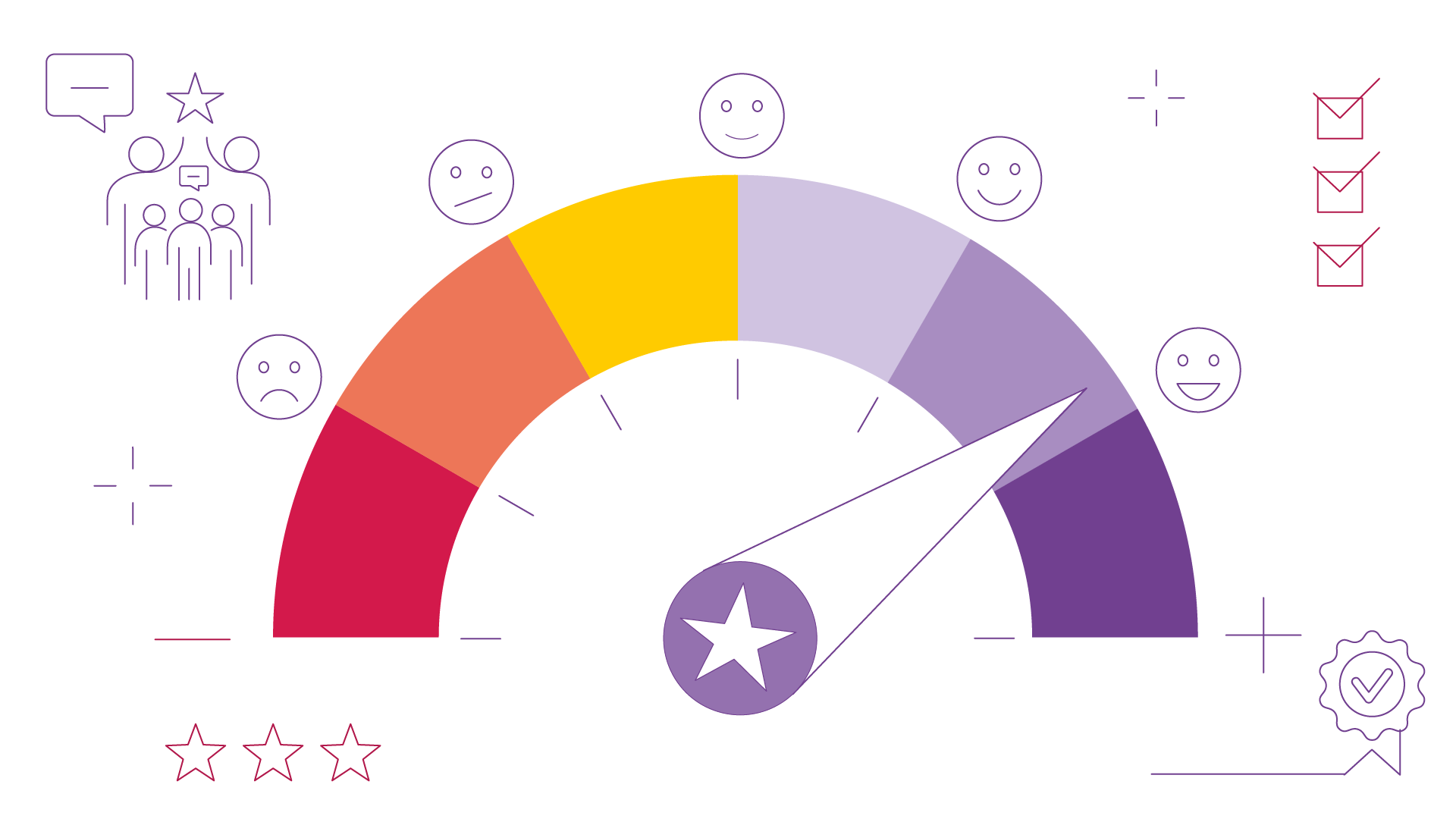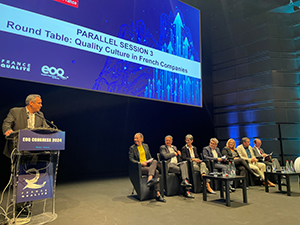Quality culture: take the pulse with the AFNOR barometer

Quality is no longer the preserve of quality specialists! Long gone are the days when the subject was dealt with solely in terms of product non-conformities and customer satisfaction, with management devolved to a single person. In the company of 2025, quality is closer to the notion of performance in the broadest sense, including extra-financial performance, than to the strictly technical notion of compliance. As a result, it concerns everyone on the organizational chart. Rather like food safety culture, quality culture is the intellectual extension of quality in the ISO 9001 sense. So much so that the next version of this voluntary standard, announced for 2026, will devote a large section to it. Specialists needed it: offering quality specialists a new approach to quality, by taking it out of their own domain, was an expectation that was clearly reflected in a study that the AFNOR group conducted in 2023 with the BVA institute, entitled “Quality in the world, movements and trends”. Quality in the world, movements and paradoxes.
Quality culture is a unifying foundation of values, behaviors and skills shared by every player in an organization,” explains Vincent Blache, an AFNOR Group specialist in this field. Integrating it at all levels of an organization, whether large or small, public or private, is essential for optimizing day-to-day performance in the service of customers and stakeholders, and ultimately ensuring the organization’s long-term viability “. Quality culture therefore goes far beyond the framework of formalized quality systems, and is rooted in the very DNA of the company. An interesting thought at a time when France is seeking to move up a gear in terms of reindustrialization, with AFNOR arguing that a good reindustrialization policy requires, among other things, a good quality policy! ” A great many manufacturers have long since made the choice to move in this direction, and they’re seeing the benefits,” says Franck Lebeugle, director of standardization activities at AFNOR, in an article published in Les Echos on March 18, 2025.
Quality culture barometer: six industrial beta-testers

Presentation of the AFNOR Quality Culture Barometer by Vincent Blache in Reims in November 2024. Credit: AFNOR/DR
In 2022, a voluntary standard set out a series of recommendations for understanding, assessing and improving organizational quality culture:ISO 10010. But it was necessary to go further, in particular by proposing a tool to assess the degree of appropriation and belonging to an in-house quality culture, without omitting anyone in the structure, and without the ephemeral, expected, selective and non-anonymized aspect of an audit. This is the aim of the quality culture barometer that AFNOR is launching in 2025, based on a full-scale test deployed in 2024 with a number of manufacturers keen to involve their teams, from all departments, in the evaluation and dissemination of an in-house quality culture: Française des Jeux, Laboratoires Pierre Fabre, Michelin, Naval Group, Nigay and Soitec. ” For us, who build military ships that will live for at least forty years, the question of transferring knowledge from one generation to the next is clearly part of our quality culture: we have to be able to continue to meet our customers’ needs even after the employees involved in product design have retired,” explains Christophe Perrin, Quality Director at Naval Group in Lorient. It’s a question of practices, behaviors and skills. The AFNOR barometer was presented at the EOQ 2024 European quality congress in Reims, France, in mid-November 2024, and the tool is now available in freemium mode for testing a single-site assessment with fewer than 80 employees, and in premium mode for more in-depth analysis.
The barometer is based on online questionnaires, but can also be supplemented by individual interviews with influential leaders and collective intelligence workshops. “There are many different angles of view, and the cross-referencing of questions brings out elements that traditional quality tools don’t,” reveals Vincent Blache. The results enable us to identify strengths and areas for improvement, compare different sites or entities, and benchmark ourselves against other companies in the sector. All this is visualized in the form of diagrams and wind roses, with the added bonus of calculating an NPQS (Net Promoter Quality Score), an indicator measuring the propensity of employees to consider themselves quality ambassadors, and to declare themselves ready to improve quality. All that remains to be done is to transform this propensity into action: this is the coaching and support role played by the AFNOR group, backed by its portfolio of quality experts. A special e-learning course on quality culture will also soon be available from AFNOR Compétences.